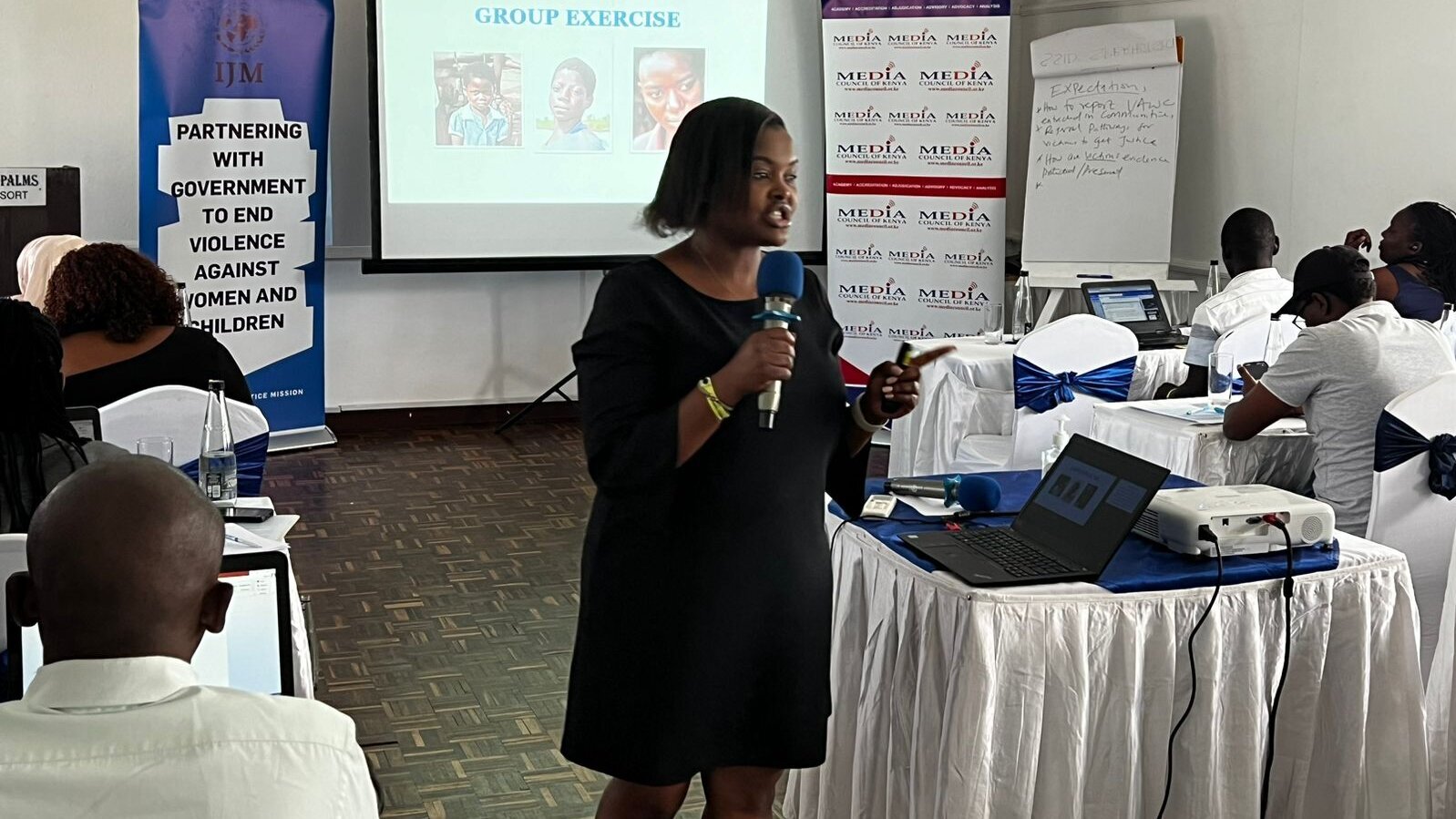Media, police urged to collaborate to combat sexual and gender-based violence

Officials from International Justice Mission, DPP, DCI, Ministry of Gender, and journalists during a media training on sexual violence against women and children in Diani on September 17, 2024. Photo/Mishi Gongo
In a pressing call for action, Naomi Maina of the International Justice Mission (IJM) has underscored the critical role of journalists and police officers in addressing sexual and gender-based violence (SGBV).
Speaking at a media training on how to report cases of SGBV, Ms Maina highlighted that the media must intensify its coverage of SGBV cases to ensure justice for victims.
"Journalists need to do more than report these crimes. They must also educate the public and work alongside law enforcement to raise awareness and support for victims," Ms Maina stated
Many SGBV victims face significant hurdles in their pursuit of justice. Evidence tampering and delayed reporting often undermine their cases, leaving perpetrators unpunished.
Maina emphasized the importance of prompt reporting and proper evidence handling, calling for enhanced collaboration between journalists and police officers.
"In many communities, victims of SGBV are discouraged from coming forward due to fear or stigma.Journalists can play a pivotal role in changing this narrative by working with communities to build confidence and encourage victims to seek justice," Maina said.
Highlighting the situation in Lunga Lunga and Samburu on the Coast, Maina pointed out the rampant unreported SGBV cases.
Victims in these areas often seek refuge in neighboring countries, where their stories go unnoticed.
The local community radio stations are instrumental in addressing these issues, as they can bring these hidden cases to light and provide a platform for victims' voices.
"The media has a vital role in amplifying these voices and addressing the vices of SGBV. Community sensitisation is crucial to combat harmful cultural practices that perpetuate violence against women and children," she added.
The challenges extend to local institutions, including police and healthcare facilities.
Reports indicate that some police officers may manipulate evidence, while hospitals sometimes lack essential resources, such as swabs for forensic examinations or qualified medical personnel. These issues further complicate the quest for justice.
"Rogue elements within the police force and inadequacies in health care facilities are significant barriers to justice for SGBV victims. We need to hold these institutions accountable and ensure they are equipped to support victims effectively," she said.
Her remarks serve as a clear call for a unified approach to tackling SGBV.
By enhancing collaboration between journalists, law enforcement, and healthcare providers, and by engaging in community sensitisation, there is hope for a more effective response to these grave injustices.
"Everyone has a part to play in preventing SGBV. It is our collective responsibility to ensure that victims receive the justice and support they deserve," she concluded.

Be the First to Comment